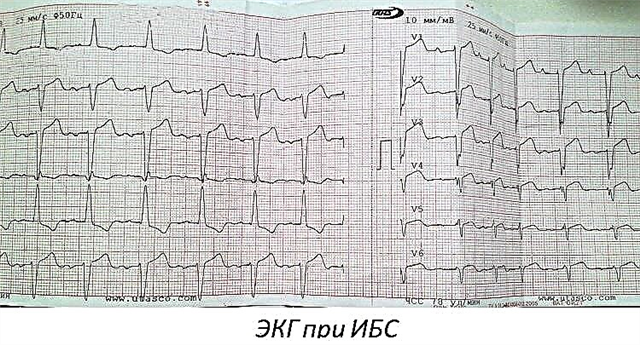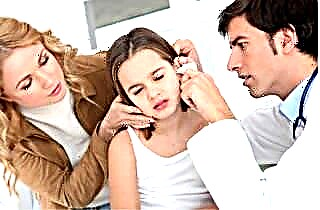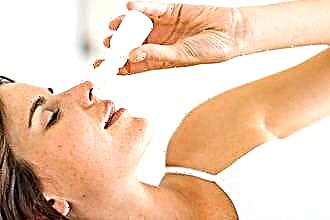Angina (tonsillitis) is an acute infectious process in which the pharyngeal, lingual, palatine or tubal tonsils become inflamed. This disease is contagious and transmitted by airborne droplets. Its main symptom is a sore throat. Angina attacks children of all ages, including infants, but most often patients with this diagnosis are children from 3 years old. Treatment of tonsillitis in a child consists not only in relieving the pain symptom, but also in an active fight against the causative agent of the disease.
Mechanism of action of sprays
 When choosing a medicine in the form of a spray, it is important to understand that this remedy is not capable of defeating the disease on its own. Sore throat sprays for children are topical preparations. Their effect is to stop the multiplication of infection, relieve pain and burning sensation in the throat.
When choosing a medicine in the form of a spray, it is important to understand that this remedy is not capable of defeating the disease on its own. Sore throat sprays for children are topical preparations. Their effect is to stop the multiplication of infection, relieve pain and burning sensation in the throat.
In sprays, the medicine is under pressure. When the lever is pressed, the active substance is sprayed onto the tonsils and vertical folds of the mucous membrane on the lateral walls of the pharynx. Some of the liquid is swallowed. This method allows you to treat the entire affected area of the mucous membrane. The high content of active ingredients in the preparation provides an immediate analgesic effect and has a positive effect on the results of therapy.
The drug concentrates on the mucous membrane and is absorbed into the bloodstream in minimal doses, without affecting the entire body, which is undoubtedly an important advantage of this form of drug release.
Sprays, depending on the components, have the following effect:
- Antiseptic. Most drugs have a broad antimicrobial spectrum of action. The combination of components enhances the healing effect.
- Anti-inflammatory. By reducing the activity of pathogenic bacteria and viruses, some drugs simultaneously reduce swelling, redness, and other signs of inflammation.
- Symptomatic. Sprays, which contain anesthetic substances, quickly eliminate discomfort in the throat, this effect lasts for a long time.
- Moisturizing and cleansing. Preparations with herbal and natural ingredients (herbs, sea water) wash and protect the mucous membrane from drying out, reduce irritation, and promote the removal of infection from the body.
Contraindications
Sprays should not be used by young children who have not yet learned to speak and cannot perform inhalation, exhalation, and spitting in response to a request.
 Some pediatricians do not recommend this dosage form for babies under 5 years old due to the risk of laryngospasm. Iodine-containing preparations are contraindicated in children under 2 years of age, since they strongly irritate the mucous membrane.
Some pediatricians do not recommend this dosage form for babies under 5 years old due to the risk of laryngospasm. Iodine-containing preparations are contraindicated in children under 2 years of age, since they strongly irritate the mucous membrane.
Before starting therapy for patients over 3 years old, it is important to discuss this issue with the attending physician and carefully consider the components of the drug. Sprays are prohibited for use if:
- the child does not tolerate the components of the medicine;
- angina is complicated by an obstructive process in the bronchi;
- at least one constituent substance causes allergies;
- the drug contains alcohol and other components that dry out the mucous membrane;
- the antibiotic in the spray has already been used for treatment less than 90 days ago. bacteria could develop resistance to this antibacterial agent, and therapy will be ineffective;
- you are already being treated with a different sore throat spray (with the exception of herbal medicines that complement therapy).
Today the pharmacy is ready to offer a wide range of sprays for the treatment of tonsillitis. When choosing a spray, it is important to consult a pediatrician and carefully study the annotation. The instructions indicate the active substances, the method of their excretion from the body, the recommended dosage and contraindications.
There is no ideal spray for sore throats for children; drugs are prescribed strictly individually, depending on the clinical picture of the disease and the age of the child.
In pursuit of a fast-acting drug, use the utmost care, as not all medicines are used to treat children.
Recommendations for use
To get the maximum benefit from the drug, the throat spray must be used correctly:
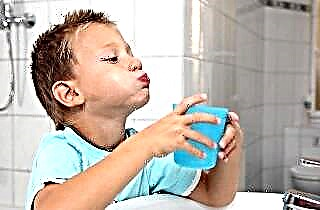 Before irrigating the throat, gargle with water to rinse the waste products of microbes in the form of pus and mucus and expose the area of inflammation.
Before irrigating the throat, gargle with water to rinse the waste products of microbes in the form of pus and mucus and expose the area of inflammation.- Before the procedure, press the medication canister several times to allow the medication to flow into the nozzle.
- Ask your child to hold their breath before spraying. Make sure that the drug does not get deep into the respiratory passages.
- Insert the nozzle into the mouth, press it twice. For the first irrigation, direct the jet to the left; during the second, to the right.
- Ask your child to refrain from swallowing saliva for a few minutes. You can consume food and drink only after 40 minutes, so that the medicine has time to act on the inflammation focus.
- Removable nozzles should be rinsed with hot water before and after spraying.
Please note that the same product can be supplied as a spray or aerosol. These are different dosage forms that differ in the principle of supplying the active substance.
Aerosol is a suspension with the finest particles and a propellant gas. When sprayed on inhalation, the agent will settle in the oropharynx in a small amount, most of it will enter the lower respiratory tract. The spray contains larger particles, so the risk of inhalation is reduced to a minimum. Medicines with a metering valve prevent overdose.
Medicines for children under 3 years old
 Even the smallest patients suffer from angina. However, spray treatment for babies is limited by physiological reasons. For babies, you can spray the dummy or spray the medicine on the inside of the cheek. The following means are used:
Even the smallest patients suffer from angina. However, spray treatment for babies is limited by physiological reasons. For babies, you can spray the dummy or spray the medicine on the inside of the cheek. The following means are used:
- "Aqualor Throat" is a drug that clears the pharynx from bacterial and viral infections, reduces pain and stops inflammation. It is indicated for the treatment of pharyngitis, acute tonsillitis. The high salt content, natural extracts of aloe and chamomile have an antiseptic effect and reduce puffiness. Washing with this drug promotes a speedy recovery. It can be used to treat children from 6 months of age.
- "Lugol" is a proven iodine-based remedy, contraindicated for allergies to iodine derivatives. The spray is effective both at the initial stage of the disease and during a long course of therapy. The spray is much more convenient to use than a pure solution. The advantages of the drug include a democratic price, widespread use in medical practice and a large number of positive reviews. But its pungent smell can cause a gag reflex. For small children, it is better to lubricate a pacifier with a solution.
- "Orasept" is a spray with antiseptic and analgesic action. Phenol and glycerin, which are part of the medication, eliminate microbes and soften the mucous membrane. They are treated with angina, pharyngitis, tonsillitis, stomatitis and other bacterial diseases of the oral cavity. The drug is well tolerated by children and has a cherry taste. Treatment of children under 2 years of age is possible only after consultation with a pediatrician.
- "Chlorophyllipt" is an effective remedy for the treatment of diseases caused by staphylococcal infection, and for the rehabilitation of the affected tissues. Copes with antibiotic-resistant germs. Contains eucalyptus extract, which is effective in combating inflammation of the upper respiratory organs. Recommended for the treatment of patients from birth in the absence of allergies to the components of the drug.Spray - one of the dosage forms of "Chlorophyllipt", indispensable for infectious processes deep in the throat.
Preparations for children over 3 years old:
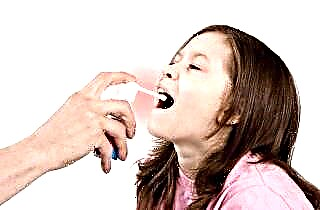 "Geksoral" is an antiseptic agent for children from 3 years old, destroying fungal infections. The features of the drug include a prolonged action (up to 12 hours) and a low level of absorption into the bloodstream. Changes in taste are possible with prolonged use. Recommended for acute purulent inflammatory processes in the throat, pharynx and oral cavity. Indications: tonsillitis, pharyngitis, severe infections of the oropharynx.
"Geksoral" is an antiseptic agent for children from 3 years old, destroying fungal infections. The features of the drug include a prolonged action (up to 12 hours) and a low level of absorption into the bloodstream. Changes in taste are possible with prolonged use. Recommended for acute purulent inflammatory processes in the throat, pharynx and oral cavity. Indications: tonsillitis, pharyngitis, severe infections of the oropharynx.- Ingalipt is a well-known drug for children over 3 years old. It has anti-inflammatory, antimicrobial action with an analgesic cooling effect. It is indicated for use in inflammatory processes in the oropharynx.
- Miramistin is an antimicrobial agent for children from 3 years old. Fights acute purulent diseases of the mouth, has antifungal and anti-inflammatory effect. Recommended for use in combination therapy with antibiotics to achieve the best results.
- Tantum Verde is an anti-inflammatory pain reliever for children from 4 years old. The drug is effective for streptococcal, staphylococcal infections, candidiasis and other bacterial diseases of the throat. After application, side reactions are possible in the form of allergies and drying out of the mucous membrane. The medicine has a mint taste.
- "Stopangin" is an antibacterial, antifungal drug of prolonged action (up to 12 hours), containing essential oils. It has an analgesic and enveloping effect when applied to the mucous membrane. Contains ethanol. It is prescribed for tonsillitis and angina of Vincent, pharyngitis, ulcers in the oral cavity. Allowed for children from 8 years old.
- "Jox" is an iodine-containing antiseptic medication. Recommended for tonsillitis (catarrhal, follicular, lacunar), acute and chronic tonsillitis, and other inflammatory processes of the oral cavity. It is used in complex antibiotic therapy. Contraindicated in heart failure, disorders of the genitourinary system and children under 6 years of age.
- "Givalex" is an antiseptic with a broad-spectrum anesthetic for the treatment of bacterial and fungal infections in the throat. Recommended for the treatment of acute and chronic tonsillitis, pharyngitis, laryngitis. For children over 12 years old.
Antibiotic sprays
 Antibacterial drugs are a serious burden on the child's body. Only a doctor should prescribe such medications.
Antibacterial drugs are a serious burden on the child's body. Only a doctor should prescribe such medications.
- Angina at an early stage can be treated with topical sprays. Bioparox is recognized as one of the best children's antibiotic sprays. It rarely causes allergies and helps to cure acute inflammatory processes: sore throat, laryngitis, rhinitis. Approved for the treatment of children from 2.5 years of age.
- Anginal is an antiseptic, anti-inflammatory drug that has an enveloping, expectorant and mild analgesic effect. Extracts of medicinal plants have a complex effect on the mucous membrane of the throat, relieve inflammation and pain, eliminate hoarseness. The spray contains eucalyptus, which actively affects gram-positive and gram-negative pathogens and fungi. It is indicated for the treatment of Staphylococcus aureus, tuberculosis microbacteria, streptococci and other microbes. Spray "Anginal" can be used to treat children from 3 years old.
Frequent sore throats in children are mainly associated with visiting children's groups, where the infection spreads instantly. Therefore, parents should think not only about the correct selection of antibiotics, but also about strengthening the child's body, increasing immunity.
The uncontrolled use of antibiotics will lead to the fact that the infection will adapt, and the child's body, oppressed by chemical exposure and disease, will not be able to cope with ailments on its own. This will entail additional chemical burden in the form of much more serious medications than topical sprays.
Conclusion
Angina is an insidious disease that requires the mandatory use of antibiotics. In each specific case, the medicine should be selected only by a pediatrician or an ENT. Tonsillitis can be of a different nature: bacterial, fungal or viral. Only a physician can diagnose angina and choose the right therapy. Self-medication is strictly prohibited and dangerously serious complications.
 To determine the type of pathogen and its sensitivity to antibiotics, high-quality diagnostics are required. Based on laboratory data, the doctor will prescribe general and local antibacterial drugs, including a spray.
To determine the type of pathogen and its sensitivity to antibiotics, high-quality diagnostics are required. Based on laboratory data, the doctor will prescribe general and local antibacterial drugs, including a spray.
With angina, the child experiences severe sore throat, so it is desirable that the components of the spray, which are allowed at the patient's age, have an analgesic effect.
The duration of the course of treatment is determined by the doctor individually. Maintain close contact with your pediatrician during the entire period of therapy. If home treatments are ineffective, you need to tell your doctor urgently. In such cases, hospitalization is indicated.
Remember that the spray (regardless of its quality) is only an auxiliary preparation for the complex therapy of angina. In addition to sprays, the child will be prescribed other medications to fight the infection from the inside, which should not be neglected.
For a speedy recovery, young patients also need peace, a balanced diet (you can take a list of permitted foods for angina from your doctor), abundant warm drinks, love and family support.

 Before irrigating the throat, gargle with water to rinse the waste products of microbes in the form of pus and mucus and expose the area of inflammation.
Before irrigating the throat, gargle with water to rinse the waste products of microbes in the form of pus and mucus and expose the area of inflammation. "Geksoral" is an antiseptic agent for children from 3 years old, destroying fungal infections. The features of the drug include a prolonged action (up to 12 hours) and a low level of absorption into the bloodstream. Changes in taste are possible with prolonged use. Recommended for acute purulent inflammatory processes in the throat, pharynx and oral cavity. Indications: tonsillitis, pharyngitis, severe infections of the oropharynx.
"Geksoral" is an antiseptic agent for children from 3 years old, destroying fungal infections. The features of the drug include a prolonged action (up to 12 hours) and a low level of absorption into the bloodstream. Changes in taste are possible with prolonged use. Recommended for acute purulent inflammatory processes in the throat, pharynx and oral cavity. Indications: tonsillitis, pharyngitis, severe infections of the oropharynx.